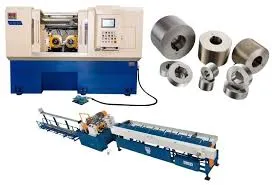
-
 Afrikaans
Afrikaans -
 Albanian
Albanian -
 Amharic
Amharic -
 Arabic
Arabic -
 Armenian
Armenian -
 Azerbaijani
Azerbaijani -
 Basque
Basque -
 Belarusian
Belarusian -
 Bengali
Bengali -
 Bosnian
Bosnian -
 Bulgarian
Bulgarian -
 Catalan
Catalan -
 Cebuano
Cebuano -
 Corsican
Corsican -
 Croatian
Croatian -
 Czech
Czech -
 Danish
Danish -
 Dutch
Dutch -
 English
English -
 Esperanto
Esperanto -
 Estonian
Estonian -
 Finnish
Finnish -
 French
French -
 Frisian
Frisian -
 Galician
Galician -
 Georgian
Georgian -
 German
German -
 Greek
Greek -
 Gujarati
Gujarati -
 Haitian Creole
Haitian Creole -
 hausa
hausa -
 hawaiian
hawaiian -
 Hebrew
Hebrew -
 Hindi
Hindi -
 Miao
Miao -
 Hungarian
Hungarian -
 Icelandic
Icelandic -
 igbo
igbo -
 Indonesian
Indonesian -
 irish
irish -
 Italian
Italian -
 Japanese
Japanese -
 Javanese
Javanese -
 Kannada
Kannada -
 kazakh
kazakh -
 Khmer
Khmer -
 Rwandese
Rwandese -
 Korean
Korean -
 Kurdish
Kurdish -
 Kyrgyz
Kyrgyz -
 Lao
Lao -
 Latin
Latin -
 Latvian
Latvian -
 Lithuanian
Lithuanian -
 Luxembourgish
Luxembourgish -
 Macedonian
Macedonian -
 Malgashi
Malgashi -
 Malay
Malay -
 Malayalam
Malayalam -
 Maltese
Maltese -
 Maori
Maori -
 Marathi
Marathi -
 Mongolian
Mongolian -
 Myanmar
Myanmar -
 Nepali
Nepali -
 Norwegian
Norwegian -
 Norwegian
Norwegian -
 Occitan
Occitan -
 Pashto
Pashto -
 Persian
Persian -
 Polish
Polish -
 Portuguese
Portuguese -
 Punjabi
Punjabi -
 Romanian
Romanian -
 Russian
Russian -
 Samoan
Samoan -
 Scottish Gaelic
Scottish Gaelic -
 Serbian
Serbian -
 Sesotho
Sesotho -
 Shona
Shona -
 Sindhi
Sindhi -
 Sinhala
Sinhala -
 Slovak
Slovak -
 Slovenian
Slovenian -
 Somali
Somali -
 Spanish
Spanish -
 Sundanese
Sundanese -
 Swahili
Swahili -
 Swedish
Swedish -
 Tagalog
Tagalog -
 Tajik
Tajik -
 Tamil
Tamil -
 Tatar
Tatar -
 Telugu
Telugu -
 Thai
Thai -
 Turkish
Turkish -
 Turkmen
Turkmen -
 Ukrainian
Ukrainian -
 Urdu
Urdu -
 Uighur
Uighur -
 Uzbek
Uzbek -
 Vietnamese
Vietnamese -
 Welsh
Welsh -
 Bantu
Bantu -
 Yiddish
Yiddish -
 Yoruba
Yoruba -
 Zulu
Zulu
custom types of thread rolling
Custom Types of Thread Rolling An Overview
Thread rolling is a highly efficient process used in manufacturing to create threads on cylindrical parts. This method involves deforming the material to form threads, rather than cutting them, which results in stronger and more precise components. While standard thread rolling techniques are widely utilized, there is a growing demand for custom types of thread rolling to meet specific industry needs. This article explores some of the custom variations and their applications.
One of the primary advantages of custom thread rolling is the ability to create unique thread profiles that are tailored to specific applications. Manufacturers can design threads with varying diameters, pitches, and depths, thereby accommodating a wide range of materials and performance requirements. For example, custom threads can be produced for high-strength applications in sectors like aerospace and automotive, where traditional threads may not offer adequate strength or durability.
Another aspect of custom thread rolling is the creation of specialized thread forms, such as left-hand threads or non-standard sizes. These customizations are often necessary for components that must fit unique mating parts or for applications requiring non-traditional thread configurations. Industries such as oil and gas, where threaded connections must withstand extreme conditions, benefit significantly from these tailored solutions.
custom types of thread rolling

The use of different materials in thread rolling is another area where custom types come into play. While steel and aluminum are commonly used, manufacturers can choose from a variety of materials, including plastics, composites, and stainless steels. Each material offers different benefits, such as corrosion resistance or lightweight properties. Custom thread rolling allows for the optimization of thread design based on the selected material, ensuring consistent performance and reliability.
In addition to physical characteristics, custom thread rolling can also accommodate unique production requirements. For instance, some manufacturers may need threads with specific coatings or finishes to enhance performance. Thread rolling can be adapted to integrate these coatings during the production process, further improving the functionality and longevity of the components.
Moreover, advancements in technology have made it possible to automate custom thread rolling processes, increasing efficiency and reducing production times. The use of CNC (Computer Numerical Control) machines allows for precise control over thread design and consistency, even in high-volume production runs. This technological integration not only streamlines the manufacturing process but also ensures that the quality of each custom threaded component adheres to strict industry standards.
In conclusion, custom types of thread rolling play a crucial role in modern manufacturing. By providing tailored solutions that address specific performance, material, and production needs, businesses can achieve higher levels of efficiency and product reliability. As industries continue to evolve, the demand for such customized thread rolling solutions is likely to increase, further shaping the landscape of manufacturing processes.
